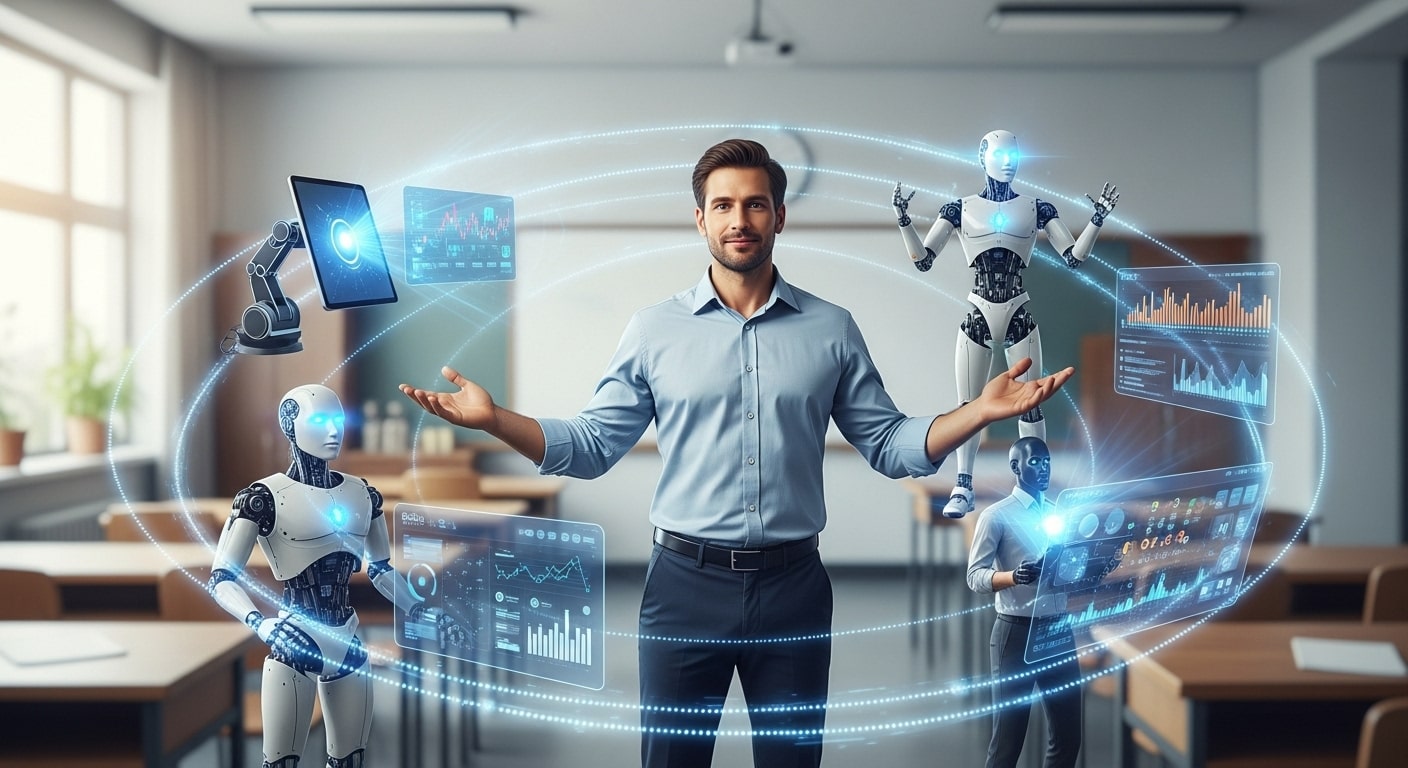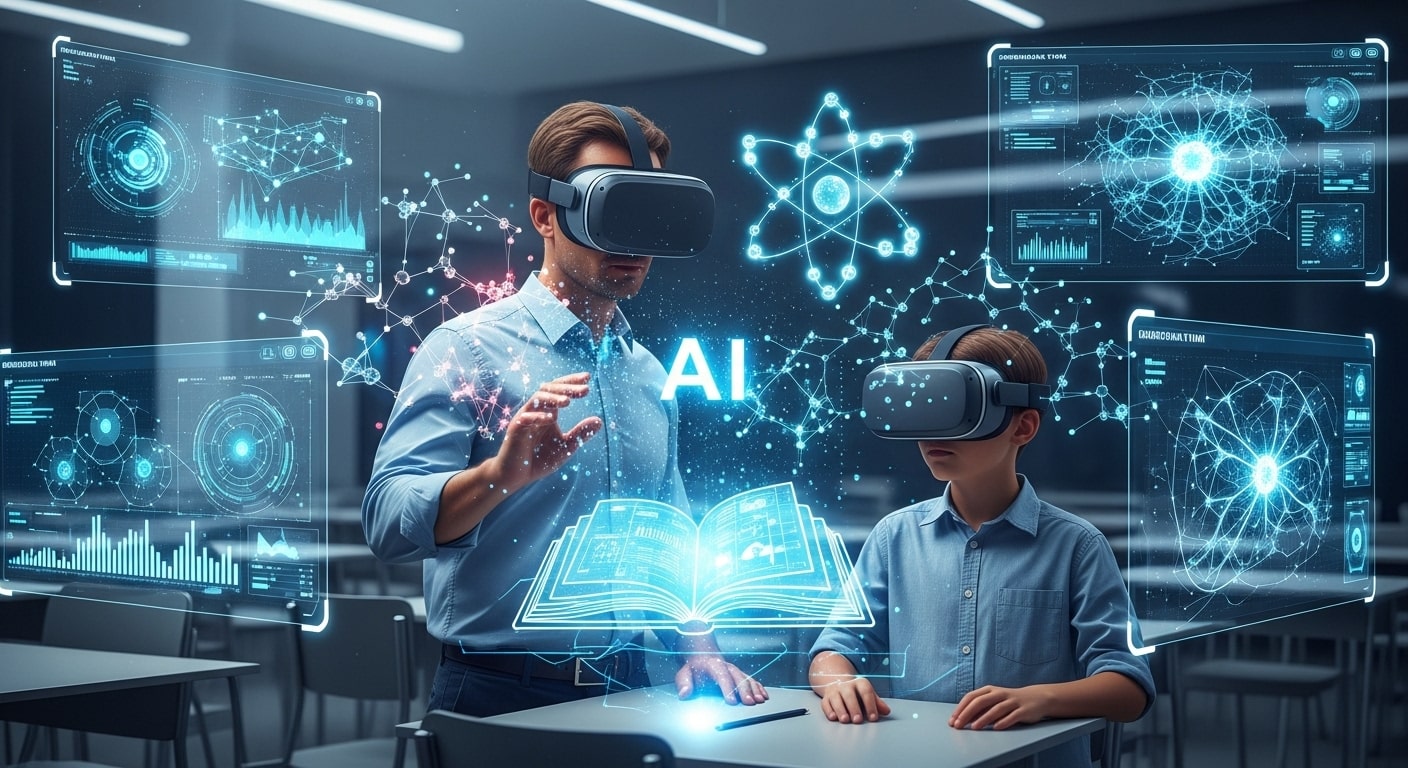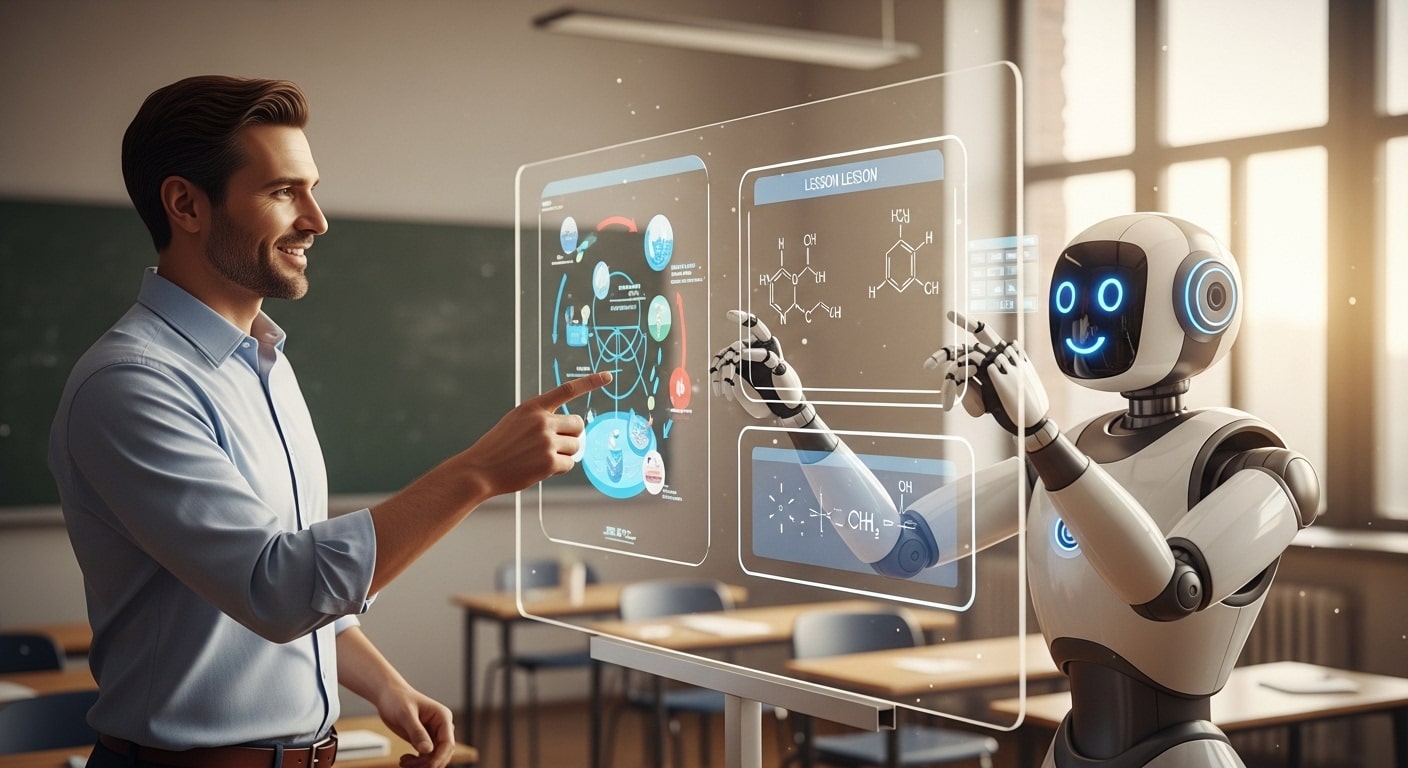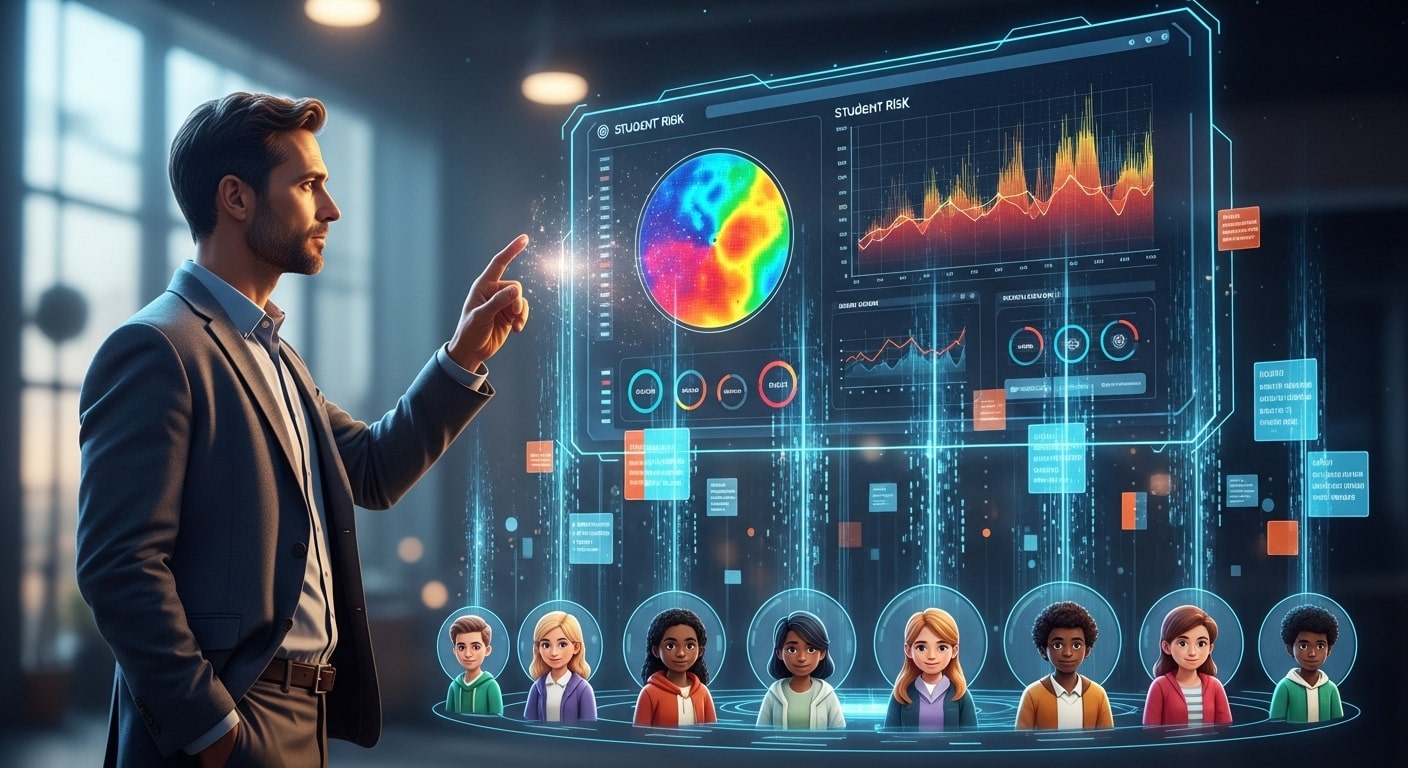As artificial intelligence transforms education, the role of teachers is not disappearing but evolving in significant ways. Rather than being replaced by technology, effective educators are finding their expertise, judgment, and human connection more valuable than ever—but often applied in new contexts and combinations. Understanding these evolving roles helps teachers navigate the changing landscape and focus professional growth in the most impactful directions.
From Content Delivery to Learning Design
Traditionally, teachers spent significant time presenting information and explaining concepts. With AI providing on-demand explanations and content delivery, the teacher’s role shifts:
Learning Architect: Teachers increasingly design comprehensive learning experiences that integrate AI tools, collaborative activities, hands-on exploration, and direct instruction where most valuable.
Experience Curator: Rather than creating all materials from scratch, teachers curate and customize existing resources, including AI-generated content, to create coherent learning journeys.
Context Provider: While AI can explain facts and concepts, teachers provide the crucial context that makes learning meaningful—connecting content to students’ lives, community issues, and broader significance.
This shift allows teachers to focus less on repetitive explanation and more on creating engaging, effective learning environments.
From Standardized to Personalized Approaches
As AI handles many aspects of differentiation and personalization, teachers’ roles in supporting individual students evolve:
Learning Coach: Teachers increasingly provide personalized guidance, helping individual students navigate learning challenges, develop effective strategies, and build metacognitive skills.
Intervention Specialist: With AI handling routine instruction, teachers can focus more attention on students who need specialized support or alternative approaches.
Strength Spotter: Teachers identify and nurture individual talents and interests that standardized systems might miss, helping students develop their unique potential.
This personalization becomes more feasible as AI handles routine aspects of differentiation, allowing teachers to focus their human insight where it adds the most value.
From Isolated to Collaborative Practice
AI tools facilitate more sharing of resources and approaches across teachers:
Professional Learning Network Builder: Teachers increasingly collaborate across classrooms, schools, and even countries, sharing effective practices and collectively improving AI implementation.
Interdisciplinary Connector: With more administrative tasks automated, teachers have more capacity to collaborate across subject areas, creating integrated learning experiences.
Community Engagement Facilitator: Teachers increasingly connect classroom learning to community resources, experts, and authentic audiences, extending learning beyond school walls.
These collaborative roles leverage the collective expertise of educators while providing richer learning experiences for students.
From Intuitive to Evidence-Informed Decisions
With better data analysis, teachers shift toward more systematic, evidence-based instructional decisions:
Learning Analyst: Teachers interpret data insights provided by AI, combining this information with their contextual knowledge to make informed instructional decisions.
Action Researcher: Teachers increasingly conduct classroom-based research, testing approaches and using data to continuously refine their practice.
Feedback Interpreter: While AI can provide initial analysis of student work, teachers interpret what the patterns mean and determine appropriate next steps.
This evidence-informed approach enhances rather than replaces teacher judgment, providing better information for professional decision-making.
From General to Specialized Expertise
As AI handles more routine tasks, teachers develop deeper expertise in specific aspects of education:
Social-Emotional Learning Specialist: Teachers focus more intentionally on developing students’ self-awareness, relationship skills, and emotional regulation—areas where human guidance remains essential.
Complex Thinking Coach: With AI handling knowledge transmission, teachers concentrate on developing higher-order thinking skills like critical analysis, creative problem-solving, and ethical reasoning.
Technology Integration Expert: Some teachers develop specialized expertise in effectively combining AI tools with human instruction to maximize learning outcomes.
This specialization allows teachers to develop and apply expertise in the areas where human guidance adds the most value.
Preparing for Evolving Roles
To thrive in this changing landscape, educators can:
Embrace continuous learning about both AI capabilities and evolving pedagogical approaches
Develop complementary skills that enhance rather than compete with AI capabilities
Reflect on personal strengths that might align with particular evolving roles
Seek professional learning communities focused on navigating these transitions
Advocate for supportive policies that recognize and value these evolving roles
The most successful educators in the AI era will be those who view technology as a partner rather than a competitor, focusing their unique human capabilities on the aspects of education that most require human judgment, creativity, empathy, and connection.
Want to learn more about implementing AI in your classroom? Check out our next article: “AI Assessment Tools: Beyond Traditional Testing.”




